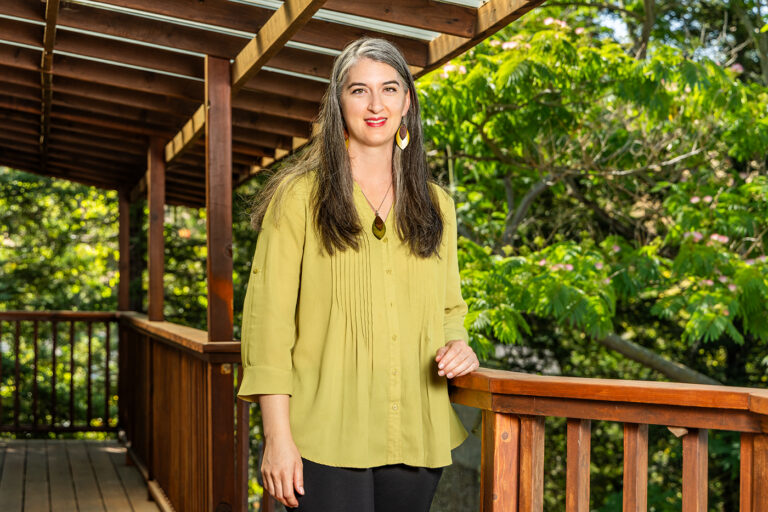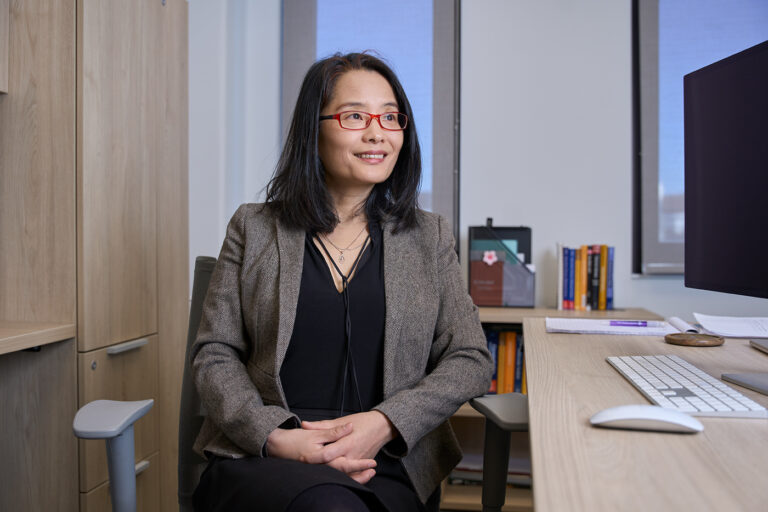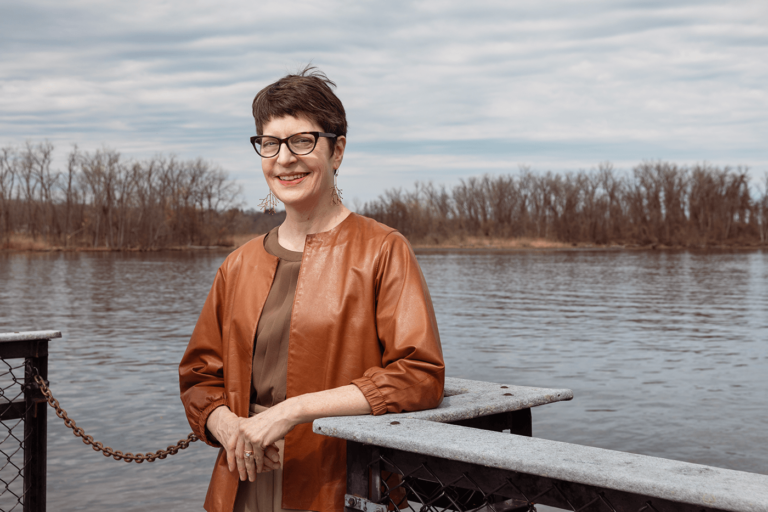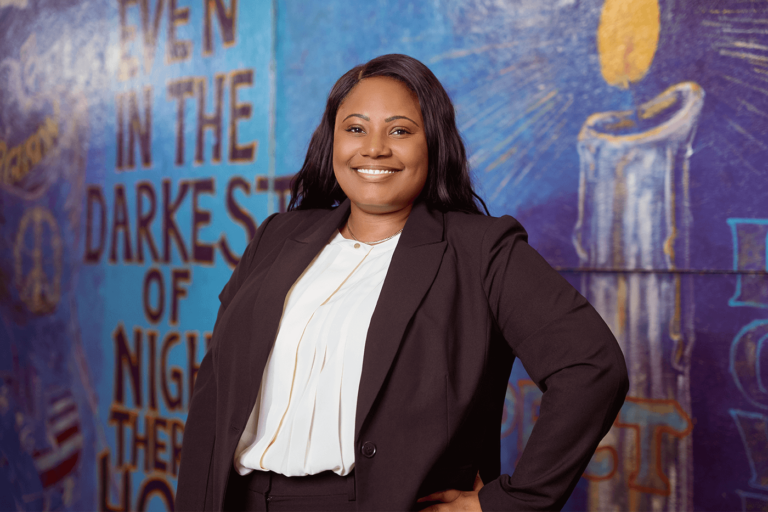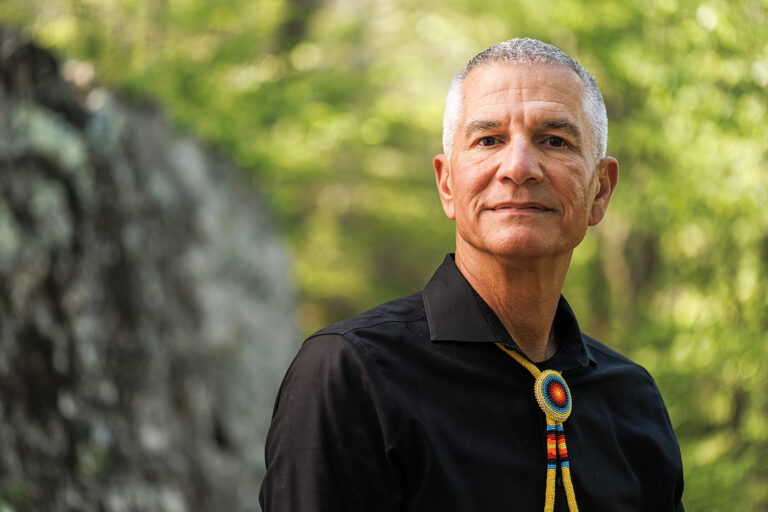Revolutionizing nutrition: The startup transforming vending machines with healthy choices
Luke Saunders, AB ’10
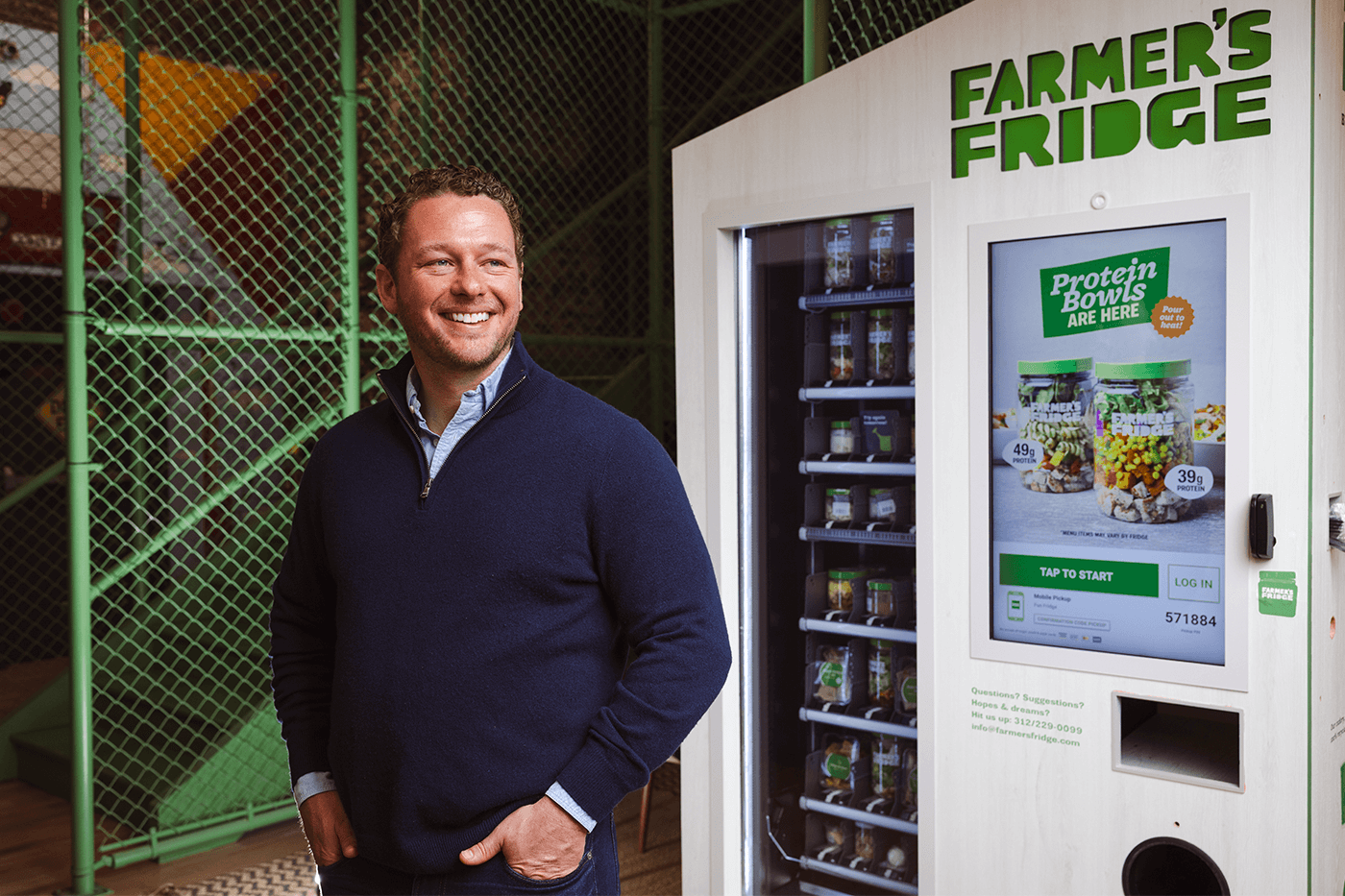
By Zellie McClelland
Back in 2013, Luke Saunders, AB ’10, founded Farmer’s Fridge, a start-up with a mission to make healthy food more accessible. Today, that company operates in more than 2,000 locations and has served 13+ million meals from its vending machines nationwide. The following interview with Saunders captures the transformative combination of a WashU education and a drive to improve human health.
“About 15 to 20% of our locations are in traditional food deserts. It’s just an integral part of our business model: to lower the cost of serving healthy food. There is real value in putting our fridges into places where there are not a lot of other options. There’s business value and public health value.”
Luke Saunders, CEO of Farmer’s Fridge
Why did you create Farmer’s Fridge?
I started the company because I was personally struggling to find fresh, healthy food while on the road for work. At the time, there was a lot of debate about the idea of healthy eating. Some argued that most Americans don’t really want healthy food — that there was no real demand — and so why push this idea on a non-existent market? But my experience suggested something totally different. I really, really wanted to eat healthy. And it was too expensive, not very easy to find, and often didn’t taste very good. In fact, I thought a lot of people probably felt just like I did — very underserved.
So, I started looking at food and thinking about public health more seriously. I’d been an entrepreneur at WashU, and I thought maybe I could build a market solution to fill the gap. A lot of my time on the road, I was selling to big food companies and visiting pharmaceutical companies, and I was seeing the food system firsthand. I’d taken a few classes on agricultural and food systems at WashU, and it was just very apparent to me that the food choices we make are often based on the constraints of our supply chain. So how could I rethink a system that made fresh, healthy food cheaper, more convenient, and taste better? And, in asking these kinds of questions, I backed into the idea for a vending machine.
Something like 60 to 70% of the calories we consume come from ultra-processed foods. It should really be like 10% — at the most. I decided, if I could just give people the option, they’d lean towards healthier food, and then they’d feel better, and I’d have a really massive impact.
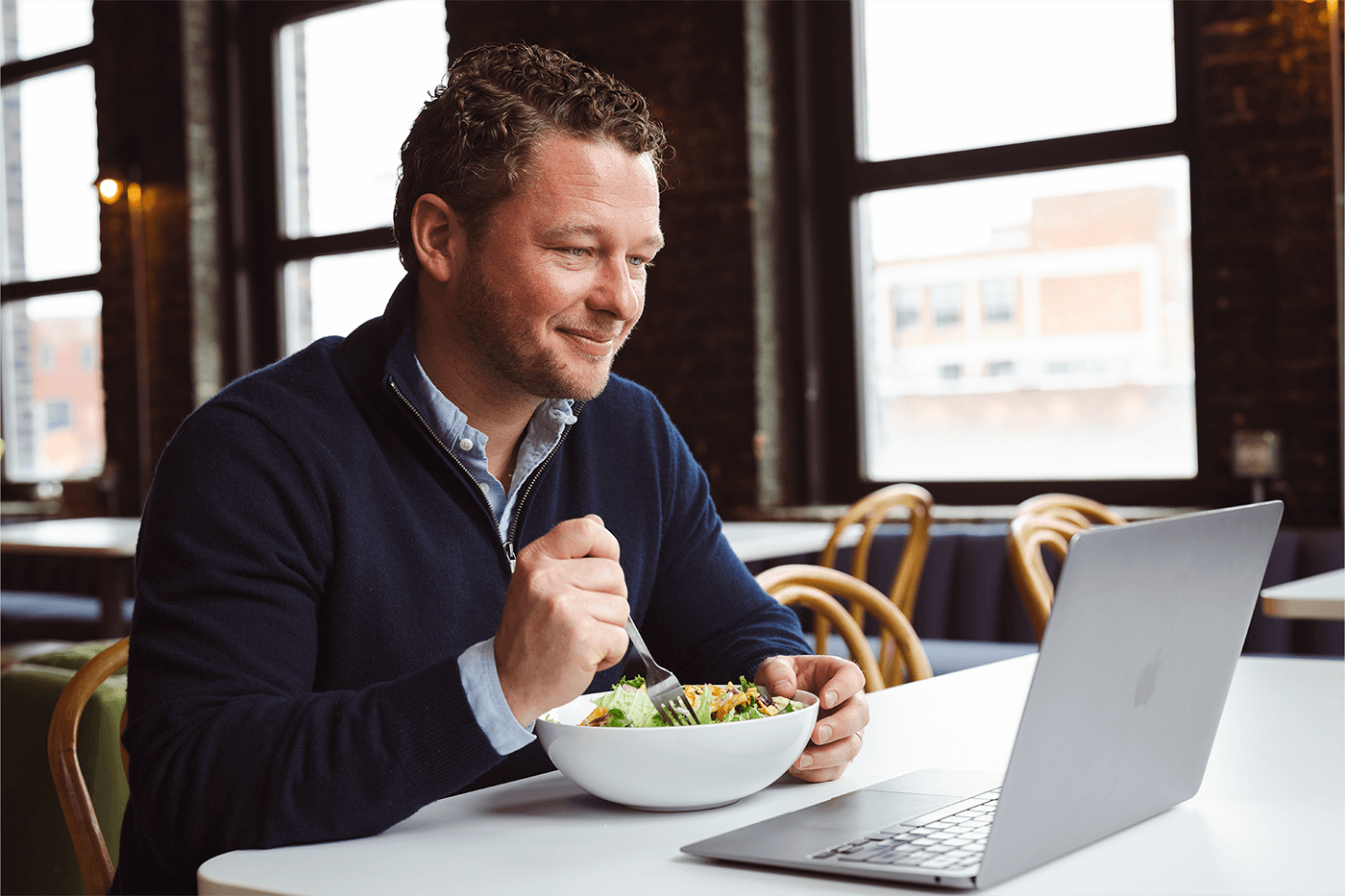
So, that raises a natural question: Have you had an impact? What has it been?
At this point, we’ve served millions and millions of meals; our average consumer is making less than $70,000 a year. We over index with low-income consumers. About 15 to 20% of our locations are in traditional food deserts. It’s just an integral part of our business model: to lower the cost of serving healthy food. There is real value in putting our fridges into places where there are not a lot of other options. There’s business value and public health value.
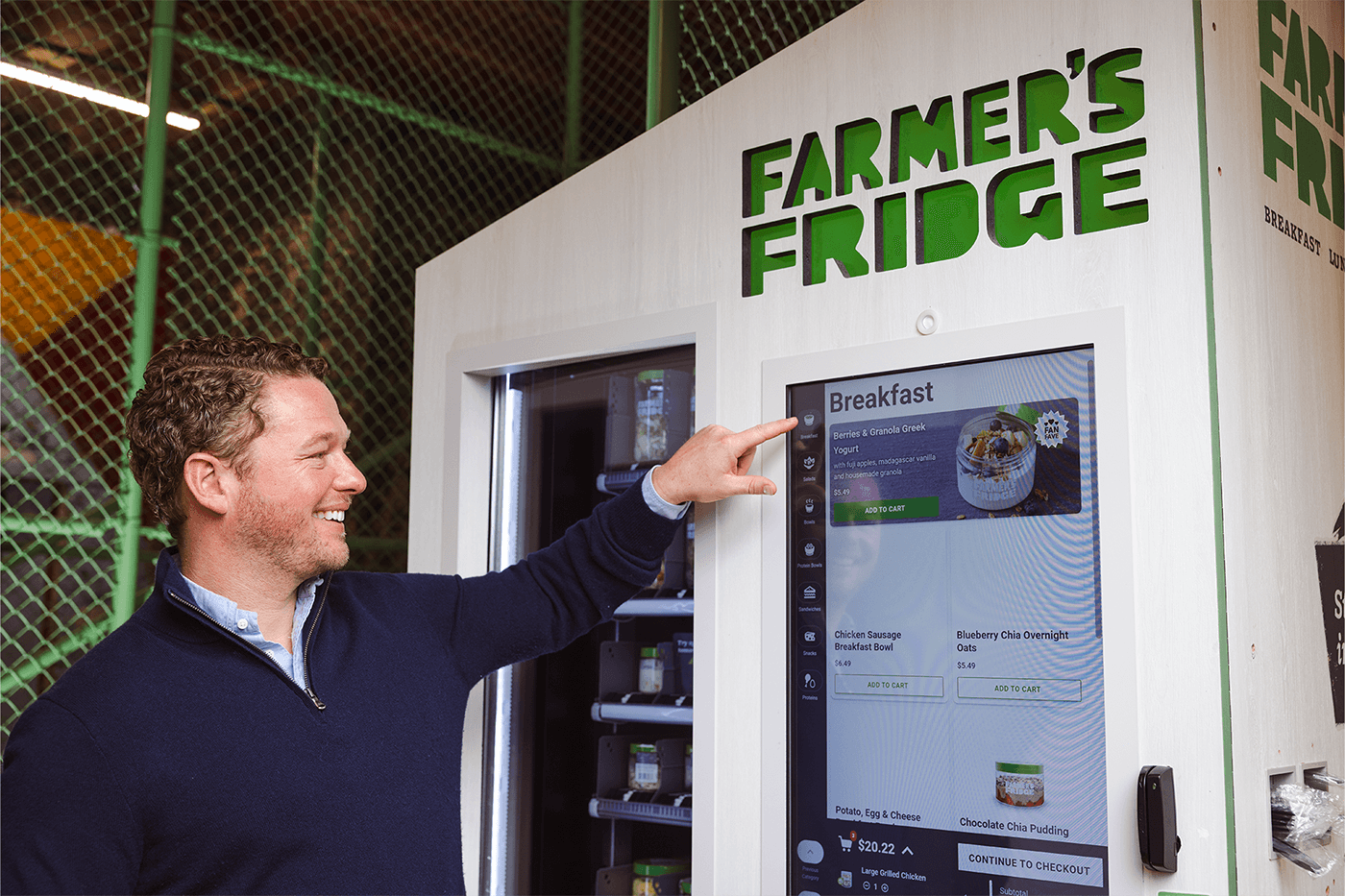
Did WashU prepare you to build Farmer’s Fridge?
First, I always tell people, that, to me, the best experience you can get to become an entrepreneur is to own a business. WashU’s entrepreneurship program, Step, made that possible for me. I owned Bear Bikes, and I was forced to learn every aspect of running a business.
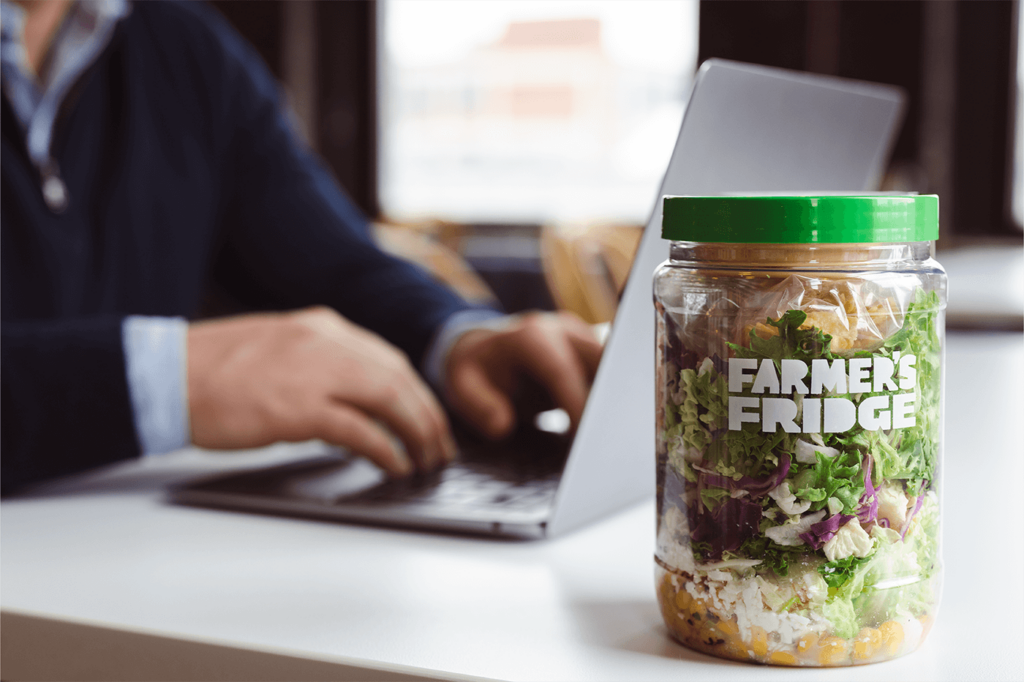
At the same time, I was pursuing interdisciplinary courses in economics, anthropology, and English as part of my international studies major. That’s how I discovered agriculture classes like Brave New Crops and Culture and Environment. They fascinated me. Studying abroad gave me firsthand insight into different food systems — like in China, where fresh produce was cheap and abundant. I gained a framework for thinking about something as ambitious as Farmer’s Fridge, which reconsiders the whole supply chain and creates incentives and value in new places.
All those WashU lessons shaped how we designed the business. And, ultimately, we’re having that positive impact.
Grounded in global community
Claudia Romeu, AB ’08, grew up in Puerto Rico, where she was raised with strong values, including a deep sense of social responsibility toward others. At the same time, her upbringing was shaped by a relative lack of cultural diversity. Studying social anthropology at WashU helped open her eyes to other ways of living and the breadth of human experience.
At the intersection of data, climate, and human health
In 2024, Bo Li joined Arts & Sciences as the Stanley A. Sawyer Professor in Statistics and Data Science. Her professorship — coming soon after the department’s formation — signals WashU’s deepening commitment to high-impact, transdisciplinary scholarship.
Powered by design, anchored in community
Having grown up in Atlanta, Angelyn Chandler, AB ’89, made it her goal to settle in a highly walkable city with robust public transportation. Upon finishing her graduate degree from Princeton University, she landed in New York
Building healthier communities
Growing up in the City of St. Louis, Doneisha Bohannon, MPH ’14, witnessed how neighborhoods shape health and opportunity. This upbringing, combined with her undergraduate studies in geography and sociology, motivated her to address disparities in her community.
From Buder scholarship to community champion
Kerry Bird, MSW ’98, applied for a scholarship to study at the Brown School almost by chance — and last minute. Inspired by the possibility of making a meaningful impact in his community, he rushed out of the meeting, found a pay phone, and called the recruiter. A month later, he was enrolled at Brown on a Buder Scholarship. That call set him on a leadership path. Today, he serves as the director of the North Carolina American Indian Heritage Commission.
